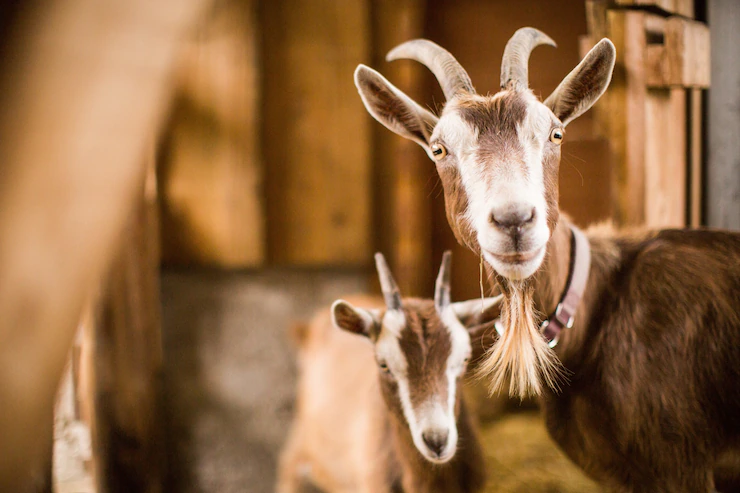When engaging in goat farming in South Africa, there are several infections and diseases that you should be aware of to ensure the health and well-being of your goats. Here are some common ones to watch out for:
- Contagious Caprine Pleuropneumonia (CCPP):
This highly contagious respiratory disease affects goats and is caused by a bacterium called Mycoplasma mycoides. It can spread rapidly within a herd and lead to severe respiratory distress, pneumonia, and high mortality rates. - Foot and Mouth Disease (FMD):
Although primarily affecting cloven-hoofed animals like cattle and pigs, FMD can also infect goats. It is caused by a viral infection and leads to fever, blisters, lameness, and decreased milk production. FMD is a notifiable disease, meaning it must be reported to the veterinary authorities if suspected. - Caprine Arthritis Encephalitis (CAE):
CAE is a viral infection that affects goats, primarily leading to arthritis, mastitis, and encephalitis (inflammation of the brain). It can be transmitted through infected colostrum, milk, and respiratory secretions. - Caseous Lymphadenitis (CL):
CL is a bacterial infection caused by Corynebacterium pseudotuberculosis. It results in abscesses primarily in the lymph nodes but can also affect internal organs. The disease is highly contagious and can lead to significant economic losses. - Enterotoxemia (Pulpy Kidney Disease):
Enterotoxemia is caused by the bacterium Clostridium perfringens and commonly affects young goats. It results in sudden death, often without any noticeable symptoms. It is associated with overeating, sudden changes in diet, and high carbohydrate intake. - Gastrointestinal Parasites:
Goats are susceptible to various internal parasites, including worms such as roundworms, tapeworms, and coccidia. These parasites can cause diarrhea, weight loss, anemia, and general poor health if not properly managed. - Brucellosis:
Brucellosis is a bacterial infection that can be transmitted from goats to humans. It causes reproductive disorders in goats and poses a significant risk to public health. Infected animals may experience abortions, retained placentas, and decreased fertility.
To minimize the risk of infections and diseases in your goat herd, it is essential to implement good management practices. This includes regular vaccination, deworming, quarantine procedures for new animals, maintaining proper hygiene and sanitation, providing a balanced diet, and ensuring adequate housing and ventilation. Consult with a local veterinarian or agricultural extension service for specific recommendations based on the region and prevalent diseases in your area.
Join 'Farmers Mag' WhatsApp Channel
Get the latest Farming news and tips delivered straight to your WhatsApp
CLICK HERE TO JOIN






